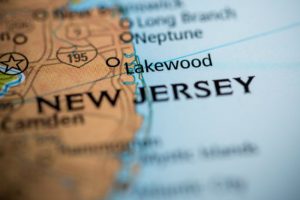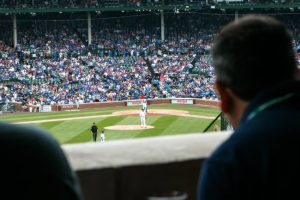 At the end of July 2018, David Rebuck, Director of the New Jersey Division of Gaming Enforcement (DGE) shared with Gambling Compliance website that he aims at making the state of New Jersey the top sports betting market in the US.
At the end of July 2018, David Rebuck, Director of the New Jersey Division of Gaming Enforcement (DGE) shared with Gambling Compliance website that he aims at making the state of New Jersey the top sports betting market in the US.
Despite the fact that New Jersey is actually one of the smallest US states by area (the fourth-smallest to be exact), it is on the 11th place by population, with approximately 9 million residents in 2017. In addition, it is the most densely populated state in the country, and in 2016 was the third-wealthiest state by average household income.
According to Adam Small, who is both President and leading analyst at DGS Media which is engaged in monitoring and analyzing the emerging sports betting and online gambling market in New Jersey, the state could find it difficult to support a sports betting industry which is bigger than the one of states like California and New York, it has its chances of overtaking Nevada.
As revealed in the recent filings with the New Jersey DGE issued on July 12th, 2018, the June gaming revenue generated in the state amounted to US$233.6 million, marking a 7.3% increase from the amount of US$217.7 million which was generated a year earlier.
On the other hand, at the end of January 2018, the Nevada Gaming Control Board reported that the casinos on the Las Vegas Strip accounted for a gaming revenue amounting to US$571.5 million in December 2017. The figure represented a 3.2% reduction compared to the amount won a year earlier, and followed monthly gaming revenue declines of more than 6% in October and November 2017. The fall was considered to have come as a result primarily of the declining Baccarat revenues, with a drop of almost 30% being registered in December 2017 in comparison to the result reported a year ago.
US Supreme Court Lifts Federal Ban on Sports Betting
 As previously revealed by Casino Reports, the US Supreme Court lifted the long-time federal ban on sports betting in the mid-May 2018. By doing this, the US Supreme Court opened the door for US states to separately make decisions over the fate of sports betting by providing them with the chance to introduce such legislation or not.
As previously revealed by Casino Reports, the US Supreme Court lifted the long-time federal ban on sports betting in the mid-May 2018. By doing this, the US Supreme Court opened the door for US states to separately make decisions over the fate of sports betting by providing them with the chance to introduce such legislation or not.
Under the court’s decision, the Professional and Amateur Sports Provision Act 1992 (PASPA), which has previously prohibited sports betting in the country, was stroke down. The ruling came as a result of long-running efforts of the state of New Jersey to make sports betting legal in Atlantic City after a referendum with a non-binding effect in 2011 gave the nod to the change.
According to experts, the decision of the US Supreme Court could see a massive change in the sports betting market on the territory of the US. The amount expected as gross gambling revenues over the upcoming five to seven years could be in the range from $2 to $5.8 billion on an annual basis.
Before the federal ban on sports betting operations was finally lifted in May 2018, four states only had been allowed to maintain this form of gambling. The state of Nevada featured sports betting in casinos, holding what was almost a sports betting monopoly in the US. Three other states – Delaware, Montana, and Oregon – were also allowed to provide local players with sports betting, offering a more limited form of sports lotteries.



















